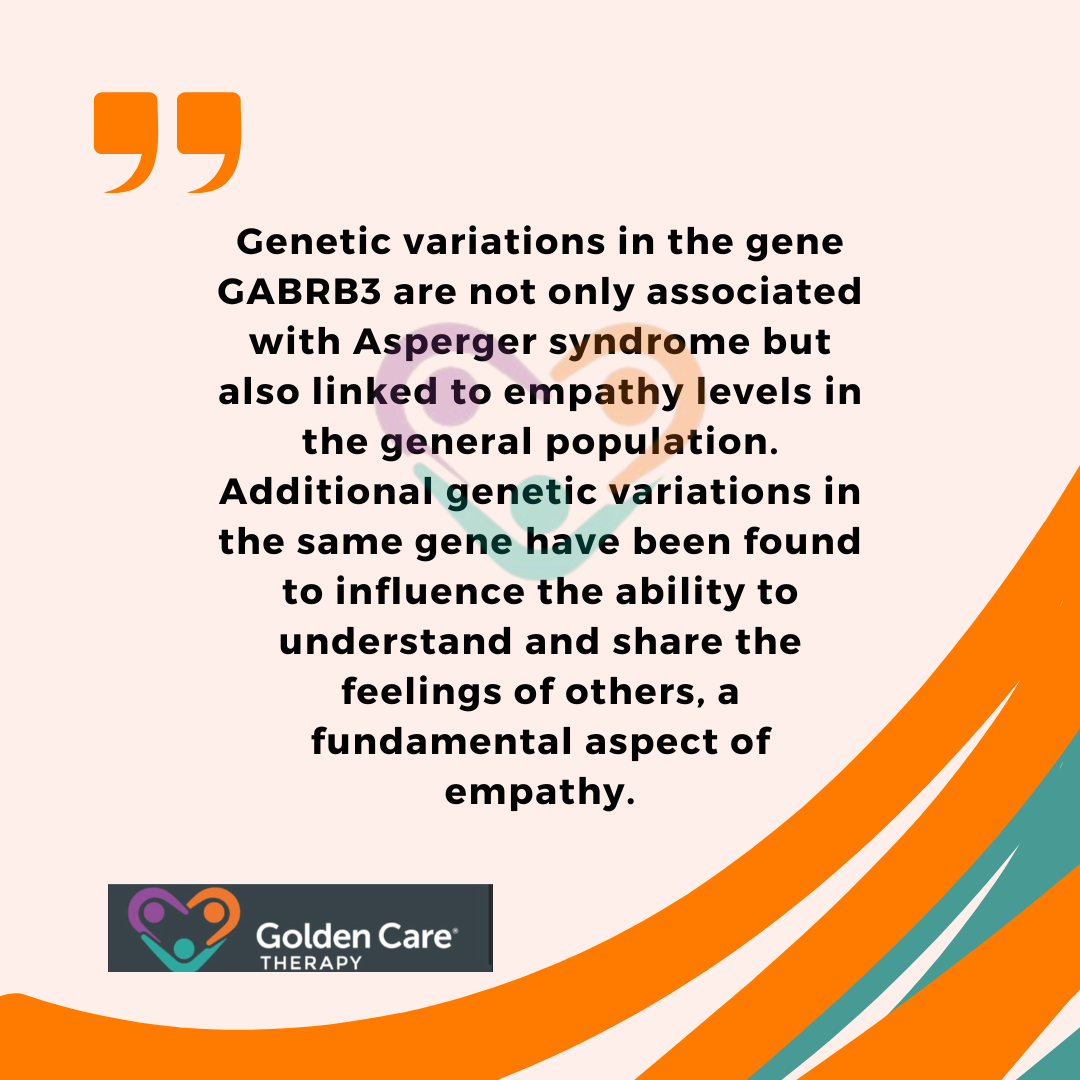Imagine a world where every individual’s unique quirks and talents are not just products of their environment but are intricately woven into their very DNA. This is the intriguing realm we enter when exploring Asperger’s syndrome – a condition that has long puzzled scientists and clinicians alike.
Are these distinct traits and behaviors we see in Asperger’s shaped by genetic blueprints passed down through generations, or are they the result of the environment in which an individual is nurtured?
Let’s find out in this article.
Is Asperger’s Genetic or Environmental?
Asperger’s syndrome has a complex etiology that involves both genetic and environmental factors. Research indicates a strong genetic component, with studies showing that individuals with a family history of autism are at higher risk of developing the condition.
Twin studies further support this, revealing a higher concordance rate for Asperger’s among identical twins compared to fraternal twins, suggesting that genetics play a significant role in the predisposition to the disorder.
However, while genetics are influential, environmental factors may also cause Asperger’s syndrome. These can include prenatal exposure to various conditions, complications during pregnancy, or early developmental experiences.
Though no specific environmental triggers have been conclusively identified, the interplay between genetic susceptibility and environmental influences likely contributes to the onset and manifestation of Asperger’s syndrome.
The Role of Gene GABRB3 in Asperger’s Development
Asperger syndrome is influenced by a variety of genetic factors. Understanding these genetic components is crucial in unraveling the complexities of Asperger syndrome and its associated traits.
In this section, we will explore the role of the gene GABRB3 and genetic variants in empathy levels.
The GABRB3 gene plays a significant role in the development of Asperger syndrome. It is involved in regulating the functioning of a neurotransmitter called gamma-aminobutyric acid (GABA) in the brain. Variations in this gene have been found to be more common in individuals with Asperger Syndrome.
Specific single nucleotide polymorphisms (SNPs), which are variations in a single nucleotide within the gene sequence, have been identified as being significantly more prevalent in people with Asperger Syndrome.
These variations in GABRB3 contribute to the manifestation of Asperger Syndrome and its associated characteristics.

Research has shown that certain single nucleotide polymorphisms (SNPs) within the GABRB3 gene are significantly more common in individuals with Asperger syndrome. These genetic variations contribute to the diverse range of traits observed in individuals with Asperger Syndrome, including differences in social cognition and empathy.
Furthermore, these findings suggest that GABRB3 is a key gene underlying both Asperger Syndrome and empathy as a dimensional trait. By studying the genetic variations in GABRB3, researchers gain valuable insights into the genetic basis of Asperger Syndrome and its associated characteristics.
Genetic Research on Asperger Syndrome
Understanding the genetic factors behind Asperger syndrome is a crucial area of research. Scientists have made significant progress in identifying gene variations and chromosomal abnormalities that contribute to the risk of autism spectrum disorder (ASD), including Asperger Syndrome.
One gene that has attracted considerable attention in the context of Asperger Syndrome is GABRB3. This gene regulates the functioning of a neurotransmitter called gamma-aminobutyric acid (GABA) and contains certain single nucleotide polymorphisms (SNPs) that vary across the population.
As mentioned earlier, certain SNPs in the GABRB3 gene are significantly more common in individuals with Asperger Syndrome.
Moreover, additional genetic variations in the GABRB3 gene have been linked to empathy levels in the general population. This suggests that GABRB3 plays a key role not only in Asperger Syndrome but also in empathy as a dimensional trait. The presence of common genetic variants in GABRB3 underscores its significance as a key gene underlying these conditions.
Chromosomal Abnormalities in Autism
Chromosomal abnormalities have also been found to play a significant role in autism, including Asperger syndrome. These abnormalities often occur in the form of copy number variations (CNVs), which involve gene duplication or gene deletion. These variations can disrupt the normal functioning of genes and contribute to the development of autism spectrum conditions.
Studies have shown that chromosomal abnormalities occur more frequently in individuals with autism compared to the general population. These genetic changes can be inherited from parents or occur spontaneously. Identifying specific CNVs associated with Asperger Syndrome helps shed light on the underlying genetic mechanisms and provides valuable insights into the disorder.
In particular, Y chromosome abnormalities have been linked to certain neurodevelopmental disorders, including autistic behavior. Research has shown that the loss of specific genes on the Y chromosome is associated with both sexual developmental disorders and autistic behavior.
This highlights the complex interplay between genetic factors and the development of Asperger Syndrome.
Heritability of Asperger Syndrome
Understanding the heritability of Asperger syndrome is essential in unraveling the genetic factors associated with this condition. Several research studies have shed light on this topic, particularly through twin studies and the examination of Y chromosome abnormalities.
Twin studies have played a significant role in exploring the heritability of autism spectrum disorders (ASD), including Asperger syndrome. These studies have shown that autism is a highly heritable condition, meaning that genetic factors contribute significantly to its development.
Identical twins, who share 100% of their genetic material, are more likely to both have ASD compared to fraternal twins, who share around 50% of their genetic material.
Research suggests that genetic syndromes, mutations, and metabolic diseases can account for around 10-20% of ASD cases. Many of the genes associated with ASD, including Asperger syndrome, are involved in brain development. Identifying these genetic variations and understanding their impact is crucial for gaining insights into the underlying mechanisms of the condition.
Y chromosome abnormalities have also been implicated in certain neurodevelopmental disorders, including autistic behavior. A study revealed that the loss of specific genes on the Y chromosome was associated with both sexual developmental disorders and autistic behavior.
This suggests a potential link between Y chromosome abnormalities and the development of Asperger syndrome.
While Y chromosome abnormalities are not the sole cause of Asperger syndrome or ASD, they provide valuable insights into the genetic factors that contribute to its occurrence. Further research is needed to fully understand the relationship between Y chromosome abnormalities and the development of Asperger syndrome.

Final Thoughts
In the end, the question of whether Asperger’s is more influenced by genetics or the environment isn’t easily answered. While we know that both factors play a role, it’s clear that genetics provides the foundation, while the environment can shape and influence how traits are expressed.
The real takeaway is that understanding Asperger’s is about looking at the big picture, where our genes and experiences work together in unique ways.
It’s by exploring both aspects that we can get a clearer view of the complexities of Asperger’s and can better support those who live with it. For personalized support and resources, consider reaching out to Golden Care Therapy. We offer services at ABA centers in New Jersey, New York, Georgia, and Indiana. Contact us today or book an appointment to learn how we can assist you and your loved ones.



